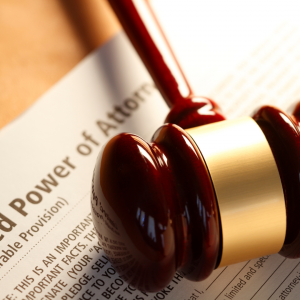A power of attorney (POA) is a document created by a principal (the person making the POA) that gives the principal’s chosen agent (the person being given power) authority to make decisions on behalf of that principal. For example, agents can often make financial decisions. Some POAs are for only one specific issue or area, while others are designed to give an agent a much broader range of power.
When you are the agent of a power of attorney, you have rights and responsibilities to the principal. Therefore, most people are careful and considerate with a POA. But what happens if a person with power of attorney, tasked with protecting a loved one, decides to misuse their authority?
We’ve helped hundreds of people like you get their affairs in order, allowing for peace of mind for the years ahead. Setting up a POA correctly and understanding who can override a power of attorney are important factors in your legal, financial, and medical protection as you age.
Can a Power of Attorney be challenged?
The short answer is yes; it can be challenged under the right circumstances. The principal can always override or revoke a power of attorney, provided they are still of sound body and mind.
But there are also times when a POA can be challenged by someone other than the principal. These challenges most often arise when someone tries to prevent the agent from exploiting an incapacitated person.
Legal action can be taken by a family member or another concerned person to prove malicious action from another family member or agent when it comes to the misuse of a POA.
Why would you want to override or challenge a Power of Attorney?
The main reason to challenge or try to override a power of attorney is the exploitation of the incapacitated person by the agent. For example, if the agent is moving money into their private account, using the principal’s account to pay for unauthorized transactions, or selling the principal’s belongings, that could constitute misuse.
Some agents may also try to change a will, adjust the beneficiary on a life insurance policy or retirement account, or otherwise make themselves the person who will inherit the principal’s possessions.
Usually, it is not the principal who sees the problem, as they may be incapacitated or unable to challenge the POA themselves. They may also not be aware of the issues the agent is causing. Generally, the principal’s family members notice the agent’s behavior and seek to terminate the POA.
3 ways to override a Power of Attorney
There are three main ways that a POA can be terminated or changed.
- A mentally competent principal can always override or terminate a POA.
- A court-appointed guardian may seek to have the agent step down from their role.
- A close family member can work to override the POA, but it has to be challenged in court.
If you are a family member of the principal, you need to follow specific steps to try to override the POA. These are:
- First, speak to the principal about your concerns and about terminating the agent’s POA.
- Second, talk to the agent and work with them to step down, with help from a licensed elder law attorney.
- Third, go to court and present the case to a judge if the first two steps are unsuccessful.
The bottom line for overriding a Power of Attorney
The stress of a loved one being exploited can be significant and challenging. But you do not need to take that stress on your own. Instead, speak to a licensed elder law attorney to get your needed help and support. Not only can that make legal issues more manageable, but it can also provide you with more peace of mind.
Ready to work with an elder law attorney to help you and your loved one? Reach out to us today, and let us address your power of attorney concerns.






